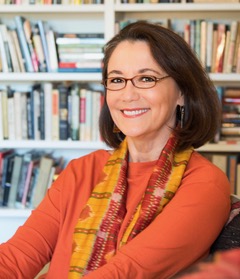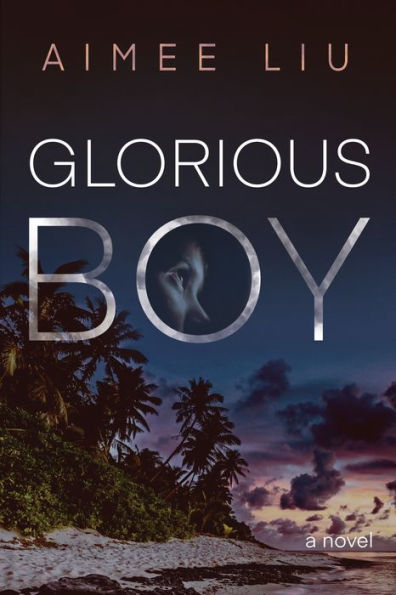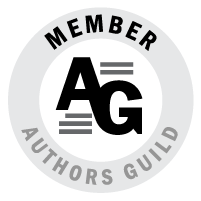Yung Wing, my grandfather, and the seeds of China’s pro-democracy movement
Perspective from China’s First Pro-Democracy Activists
Yung Wing, my grandfather, and the seeds of revolution against the China’s last empire

In 1900 my grandfather Liu Chengyu became one of China’s first pro-democracy activists when he joined a student-organized plot to blow up an imperial armory near his home in Wuchang. The plot was exposed and several of my grandfather’s young collaborators were beheaded, while he escaped into exile. In today’s New York Times Morning newsletter, I felt as if I was reading about my grandfather through a time warp:
“A college student in the southern port city of Guangzhou… used Apple’s AirDrop feature to send photos of protest messages to fellow subway passengers’ iPhones. He’s so young that when he said his age, my heart ached. (He asked to keep his name and his age private for fear of punishment by the Chinese authorities.) I asked why he risked so much to protest. He said he wanted to end the rule of the Communist Party and make China a democratic country.
I asked him why democracy was important. “In a dictatorship, the dictator doesn’t need to answer to anybody,” he said.
The same could be said of the Qing emperor and the dynastic dictatorship that my grandfather pledged to overthrow more than a century ago. Not many people today give much thought to the activists who first introduced the notion of democracy to China. So many political, economic, and military convulsions have since gripped the Middle Kingdom that the idealism of those early revolutionaries now seems both quaint and tragic. But they were every bit as brave, hotheaded, and patriotic in their time as the college students who dare to oppose Xi Jinping today.
A fateful meeting
For those who are following China’s pro-democracy movement, I offer this annotated extract from my grandfather’s memoirs, in which he meets an even earlier godfather of democracy in China, the 19th-century diplomat and Yale graduate known in America as Yung Wing.
My grandfather begins:
In 1901, after I was implicated in the T’ang Ts’ai-ch’ang case [the plot to blow up the armory], I fled to the safety of Shanghai. There my friend who had just returned from Japan, invited me to accompany him to Hong Kong to meet the famous Jung Ch’un-fu, who was known in America as Yung Wing.
It startled me when I first read this name in my grandfather’s book. I’ve been fascinated by Yung Wing for years. He was the first Chinese person ever to study in America; he graduated from my own alma mater, Yale, in 1854. After that he shuttled between America and China to champion better relations between the two countries, and in 1872 he launched the Chinese Educational Mission, which brought more than one hundred Chinese boys to study in New England. Yung Wing had an American wife, as did my grandfather, but this passage was my first notice that they personally knew each other.
In Hong Kong I went to the Empress Hotel. There in the lobby my friend pointed to an elder with pure white hair wearing a western-style suit and mustache. The man had a high square forehead and quiet eyes. This was Mr. Yung.
As soon as he’d shaken our hands he said: “The court in Peking has telegraphed to have me arrested, did you know? But I am almost eighty.” He sighed. “The future lies with you.”
When I told him that I aspired to follow his example, Mr. Yung said, “I will be in Hong Kong for three days. Move over here to the Empress Hotel and we can spend these days talking.”
What follows is an arcane and unofficial biography that begins with an American school master who took Yung under his wing in Macao, then brought him to New York in 1847. Five years later, Yung Wing was naturalized as a U.S. Citizen. “In America,” he told my grandfather, “I read about the history of the independence of the thirteen colonies. It made me want to return and build a free China.”
Tens of millions of people were killed as the Qing Emperor’s soldiers battled the forces of the Taiping’s wild-eyed “Heavenly King” who believed himself to be the younger brother of Jesus Christ. Yung Wing was one of the few outsiders to penetrate the Taiping’s royal sanctum.
But China, at the time, was a mess. The Taiping Rebels had seized the entire Yangtze region. So, after graduating from Yale, Yung went to Hong Kong and practiced law. Later, my grandfather writes, he worked for an English trading company. But the manager of the company wanted to send him to Japan as a comprador — a native agent, or go-between. Mr. Yung refused, comparing the post of comprador to that of chief of company slaves.
Yung Wing accepted a job instead as inspector of China’s tea regions, and the odyssey that followed sounds, at least in my grandfather’s telling, like a cross between Heart of Darkness and Through the Looking Glass. It occurs to me that this encounter between my grandfather and Mr. Yung must have provided my grandfather’s inspiration for a sixteen-volume history of the Taiping that he wrote soon after this meeting.
Inside the Taiping’s Heavenly Kingdom
The Taiping Rebellion, which lasted for more than 15 years in the mid-1800s was the bloodiest civil war in world history. Tens of millions of people were killed as the Qing Emperor’s soldiers battled the forces of the Taiping’s wild-eyed “Heavenly King” who believed himself to be the younger brother of Jesus Christ. Yung Wing was one of the few outsiders to penetrate the Taiping’s royal sanctum. Here my grandfather quotes Mr. Yung’s own account of his meeting with the whole bizarre crew of Taiping Kings:
“On each corner of the palace hall hung a huge lantern. The outside entrance screen was yellow, and the inside one was red. The Heavenly King sat on the highest seat in the hall, and the other kings sat on either side in armchairs arranged in two parallel rows. Each king wore a red turban and an embroidered gown. The votive plaque read ‘Hall of Diligent Government.’
“The Servant King asked me about Christianity in foreign countries and whether it was the same as Taiping Christianity. I said: ‘In Europe since the Middle Ages, religion and government were not separate, and so they had religious wars. Now America is a democratic country where there is government by the people. God loves life and despises killing. Jesus sacrificed himself to save man, similar to Confucius; doctrine that the people are the most important.’
Though the Servant King professed to like these suggestions, he drily told Yung they’d have to wait until the Taiping first killed off all their enemies. Then he granted Yung Wing safe passage deep into the Heavenly Kingdom.
Passing the pro-democracy baton
After the Taiping were defeated, Mr. Yung became Imperial China’s ambassador to Washington. When my grandfather met him he was completing his final diplomatic mission before retiring. My grandfather would have been just 26.
When Mr. Yung left Hong Kong, he again told me, “I am old. I am going to end my days in America. It will be difficult to meet again.”
I bowed in the manner of a disciple. “I want to serve you as my teacher.”
Mr. Yung said, “Every day take the heart of the Chinese people as your own, and every day work for the Chinese people. Don’t make grand orations, just seek practical results. This is all I have to say.”
Mr. Yung died in America at the age of 85. He had an American wife, the daughter of a U.S. Senator. They had two sons who grew up in America. The second son returned to China and was a secretary in the presidential palace of Sun Yat-sen in Canton, where we became close friends.
My grandfather also, like Yung Wing and his son, formed a close friendship with Sun Yatsen, who is generally regarded as the Father of Modern China. My grandfather pledged to fight for the free and democratic China that his two elder mentors envisioned, and he did everything in his power to live up to their examples. He became the first Senator from Hupeh (now Hubei) province when China finally succeeded in overthrowing the Manchu dynasty in 1911, and he spent the rest of his life in various revolutionary, republican, and ministerial positions, right up until the Communist takeover in 1949, when my family in America lost track of him.
“The court in Peking has telegraphed to have me arrested, did you know? But I am almost eighty.” He sighed. “The future lies with you.”
My grandfather’s dream of democracy blazed and fizzled, was snuffed out and reignited many times over. That dream today is still alive but little closer to realization than it was when this life-changing encounter took place between my grandfather and Yung Wing 121 years ago.
My heart, too, aches for that passionate young student in Guangzhou today who dares to speak truth to the tyrannical power of China’s 21st Century emperor. But I fear that the more things change in China — and perhaps the world over — the more they remain the same.



